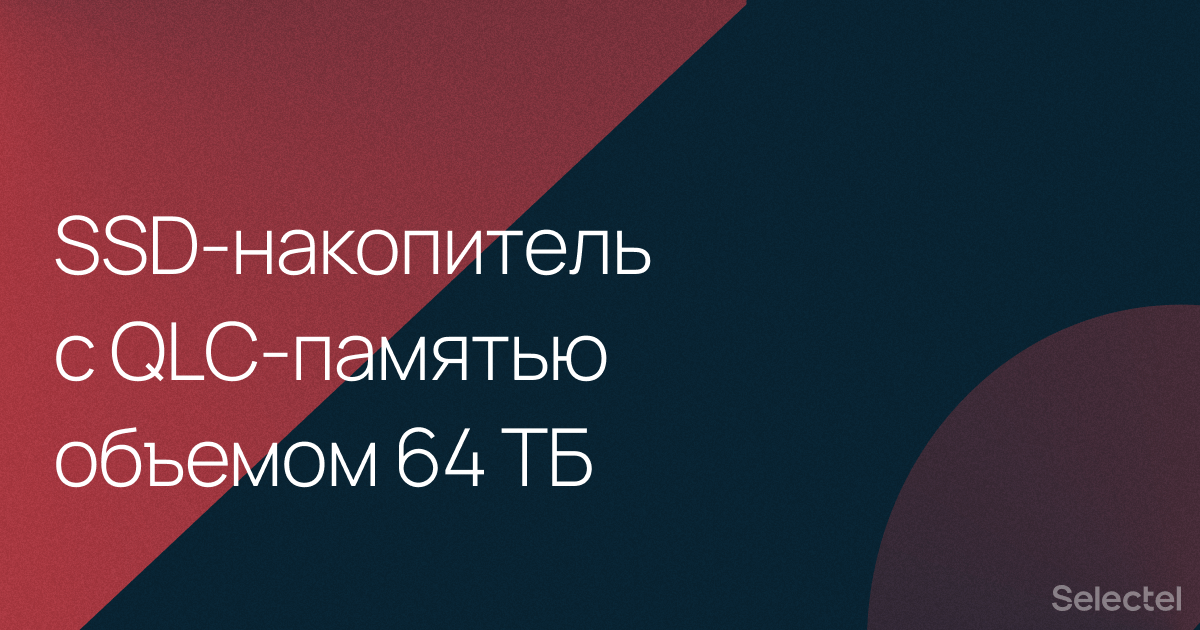
Nimbus Data unveiled 64TB ExaDrive NL solid state drive. Large-capacity SSDs are designed for corporate customers who need to store large amounts of data but do not require ultra-fast access speeds.
The Nimbus Data developers used QLC memory, which made it possible to reduce the cost of the SSD. This type of memory is slower than traditional TLC, but the emphasis has been placed on reducing the price of drives for corporate customers.

One of the main differences between QLC memory and TLC memory is the increase in the number of bits in one NAND cell to four. This is more than TLC (3 bits), MLC (2 bits) and SLC (1 bit). One QLC chip can hold up to 4 times more information. Unfortunately, the reliability of such drives is slightly lower than that of TLC. Since a cell has as many as 16 states, it degrades much faster than in the case of TLC, MLC and SLC. With wear and tear, the access speed gradually decreases, which can lead to a drop in read / write performance to the HDD level or even lower.

Nevertheless, Nimbus Data assures that they have solved the problem of reliability and the SSD-drive will work at least 1,500 P / E cycles without failures. The manufacturer estimates that the device will withstand 0.2,60.6 rewrites per day, or approximately 75 PB of data over 5 years.

Tests have confirmed that the read speed of the SSD from Nimbus Data is about 500 MB / s, and the write speed is 460 MB / s. "The ExaDrive NL series provides the perfect balance between HDD and NVMe SSDs," the company said in its presentation. Power consumption of ExaDrive NL is 75% lower than HDDs per 1 TB of stored data.

For the introduction of solid state drives into the network infrastructure, support for SATA-3 and dual-port SAS-2 interfaces is provided. Standard 3.5 ″ SSD form factor with additional ventilation. Consumes 7W in standby mode and 15W in recording mode.
Nimbus Data recommends using ExaDrive NL for storing unstructured data and content in CDN storages. For example, for text documents, photos, presentations. The manufacturer has tested the drive with the PowerEdge Rx40 as well as Cisco UCS, Lenovo ThinkSystem and Supermicro.
The cost of this miracle of technology is $ 10,900. SSD-drives of 16 and 32 TB are also available at prices of $ 2,900 and $ 5,600, respectively.